Last Updated on February 26, 2024
It’s Oscar night 1987, Jeff Bridges and Sigourney Weaver are dressed up all fancy, ready to tear open that majestic envelope and read the name of the best supporting actor of the year. The competition was tough but when but the victor of the night was that of Sir Michael Caine for his wonderful performance in the Woody Allen flick Hannah and Her Sisters. The audiences erupted with applause as they celebrated Mr. Caine’s triumphant Oscar glory. But then silence nothing… the actor is nowhere to be found. Where could he be? What event could drag him away from this ceremony? Unfortunately, it would turn out the Michael Caine was stuck in the furious jaws of Universal and was out battling stupid sharks instead. That’s right, Michael Caine missed this Oscars because of Jaws: The Revenge. Was it worth it? Of the universally panned sharkie fourquel, Michael Caine said, “I have never seen it, but by all accounts, it is terrible. However, I have seen the house that it built, and it is terrific.”
But that the thing with Michael Caine is that he can be perfectly placed in Oscar winners and silly stinkers. And Michael Caine isn’t even his real name. He took his stage name from The Caine Mutiny, he birth name is Maurice Micklewhite, which is way too British even for Michael Caine. But this actor did give everyone a new type of British leading man to root for… the Cockney kind.
Hollywood legend John Wayne once look Michael in the eyes and said, “You’re gonna be a star.” and boy howdy was The Duke right. But, with his retirement seemingly official, have we seen the last of the cockney legend?
Caine was born Maurice Micklewhite on March 14, 1933 in London, England. His family was relocated twice due to German attacks during World War II. He would struggle personally and financially and would later say he owes his survival at this time to the generosity of his friends. This gratitude and humility would carry forward, even as Michael Caine would go on to appear in movies that grossed over 8 billion at the worldwide box office.
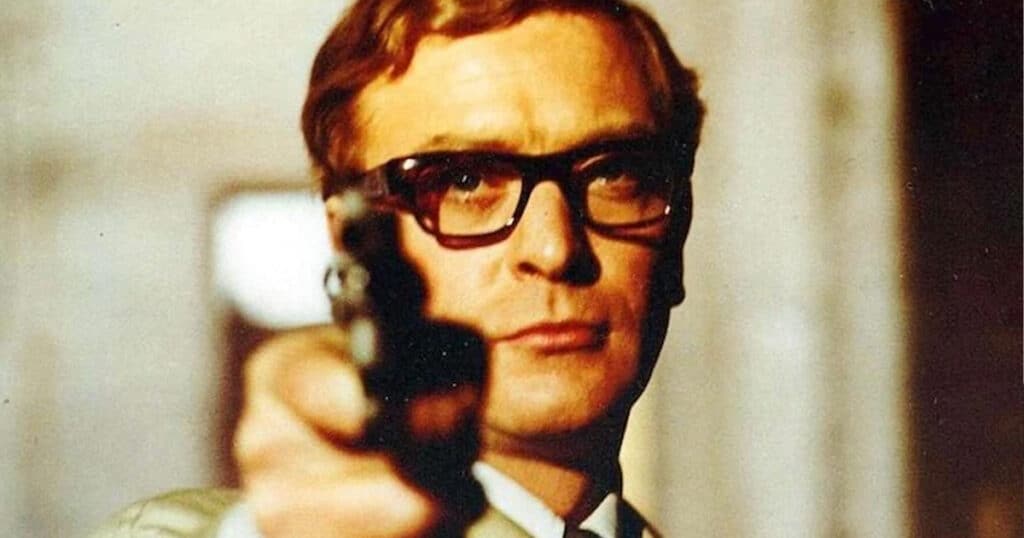
Michael Caine’s first credited movie appearance was in the 1956 war drama A Hill in Korea, a role he was well-suited to play as Michael served in the British Army and actually faced death in the Korean War, an experience that would shape him for the rest of his life. Fun Fact: Christopher Nolan would go on to use the same soundstage used for A Hill in Korea for Batman Begins.
Caine’s early years as an actor in the 1960s are among his most compelling. Take, for example, Caine’s breakout role in the epic war flick 1964’s Zulu. It would earn $8 million on a $1.72 million budget and remain in television circulation for decades. The movie and Caine’s performance as the redeemed Lieutenant were well-reviewed. It really was a big deal at the time for a Cockney actor to portray a posh officer, and that endeared Caine to the working class of Britain.
With his pay for spending three months in the mountains of South Africa, he bought his daughter a horse and set up his mother in a new flat. He takes care of his people. After finding out that he had a disabled half-brother that his mother hid from the rest of the family for over 40 years, Caine took care of him in his final years.
One of Michael Caine’s most iconic and enduring characters was borne out of his appearance as spy Harry Palmer in 1965’s The Ipcress File. Caine found comfort in the role. He said it was “more like the real me” than his showing in Zulu. Caine would reprise the role in 1966’s Funeral in Berlin and 1967’s Billion Dollar Brain. The Palmer character ran parallel to early Bond features, even overlapping some creative and crew. The character would come to be seen as the “anti-Bond”, more human, more relatable, more grounded, like Michael Caine himself. Palmer is like if Bond needed glasses and concerned himself more with paperwork and pay raises than saving the world. The character would be revisited with Caine’s portrayal in 1995’s Bullet to Beijing and 1996’s Midnight in St. Petersburg.
If Zulu was Michael Caine’s big acting break, 1966’s Alfie was his break-through. “To be a movie star, you have to carry a movie. And to carry a movie where you play the title role is the supreme example. The third thing, for a British actor, is to do it in America. The fourth is to get nominated for an award. That picture did all four things for me.” In Alfie, Caine portrayed the titular crass womanizer anti-hero to perfection, and the performance legitimized him as a leading man. It’s a poignant and engaging story that serves as snapshot of romance in the 1960s and shows that sometimes people really do get what they deserve.
The Alfie role earned Michael Caine his first Academy Award nomination. He would go on to be nominated for an Oscar for five consecutive decades from the 1960s to the 2000s.
Michael Caine stayed busy throughout the late-60s. Standouts include WWII film Battle of Britain from 1969 and the comic capers Gambit from 1966 and The Italian Job from 1969, which is a super fun exploration of British culture in the 1960s and features an awesome car chase, if that’s your thing. Caine’s charisma jumps off the screen in this movie. It’s probably the coolest he’s ever looked, in a film, and that’s saying a lot.
Then came those not-so-swinging 70s and Caine’s best movies of the 1970s include 1971’s Get Carter which would get a Stallone remake that featured Caine, 1972’s Sleuth (he also starred in that 2007 remake), 1975’s The Man Who Would be King, where he starred alongside longtime friend Sean Connery. Their chemistry is palpable in the film, and Caine plays off of Connery perfectly. Despite the star power of the leads and the film’s director John Huston, the film made just $13m on an $8m, budget. It was well-regarded by critics and certainly appreciated in the years to follow. 1977 saw A Bridge Too Far, which was a well-received all-star war epic that’s become a classic. But, as always the quality of his films were hard to predict, as that same year he made one of his worst films ever, The Swarm, whch he inexplicably followed up with 1979’s Beyond the Poseidon Adventure for the same director, which is a pretty good lesson in how not to do a sequel.
Sometimes, Caine’s reasoning for taking roles could be questionable. Alfred Hitchcock wanted Michael for 1972’s Frenzy, but Caine refused “the part of a sadist who murdered women…a real killer who cut women to smithereens”. Hitchcock would balk at the rejection and hold a grudge against Caine that would last the rest of the legendary horror director’s life and just cast a dude who looks like Caine. Caine’s reasons for turning down Frenzy are rather odd considering his performance in Brain de Palma’s masterpiece Dressed to Kill in 1980 which is basically a homage to Hitchcock and spoiler alert Caine is the killer. This Michael Caine shaped woman turned out to be Michael Caine in drag!
Other notable films include 1981’s Victory (opposite Sly!) and 1982’s Deathtrap. 1983 saw Educating Rita, which Caine says is his favorite of his films and features the performance he’s most proud of. He counts The Magus (1968), The Swarm (1978) and Ashanti (1979) among his worst. In Educating Rita, Caine’s genuine approach makes what would otherwise be a pretty unbelievable relationship believable. 1986’s Hannah and Her Sisters would net Caine the only Academy Award for a Woody Allen- directed male actor. Caine portrayed honest love and affection in an endearing and sincere way.
Indeed, Caine would earn his first Oscar as Elliot in Hannah and Her Sisters in 1987 and as you know missed the ceremony due to filming for Jaws: The Revenge. It’s a shame that Caine missed that ceremony, because when he did make an award speech, it was usually a memorable one. In his 1999 Golden Globe speech, for Best Actor in a Musical or Comedy for his role in Little Voice, he quipped,
“My career must be slipping; this is the first time I’ve ever been available to pick up an award…I used to take every script that came in, and so I made a lot of crap. And a lot of money. So now I have enough money to be artistic and wait.” While some may not like Caine’s politics or may claim he comes off as arrogant, the peaks of his career are largely unassailable. If there’s any professional criticism that can be levied at Michael Caine, he was certainly never one to turn down a role, even if the movie was, as he said it, “crap”.
There was the genre-bending neo-noir Mona Lisa and 1988’s Dirty Rotten Scoundrels is a fantastic comedic conman remake of the Marlon Brando-starring Bedtime Story from 1964. Frank Oz of Muppet fame ably tapped into the great dynamic between Michael Caine and Steve Martin. Caine held his own with and even at times exceeded Martin, when it came to the comedic aspects of the role. 1992 brought us The Muppet Christmas Carol. Caine carries the movie as the lead Ebenezer Scrooge, playing it straight while having Muppets as his supporting actors, which is the best way to tell this type of story.
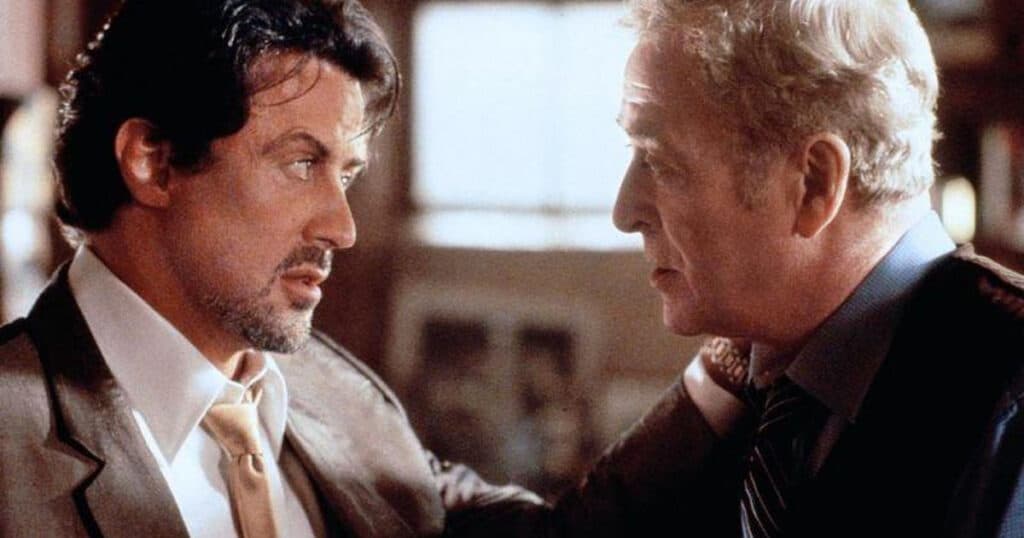
And then Michael Caine took on Tom Cruise, Jude Law, Haley Joel Osment, Michael Clarke Duncan in an epic Oscar battle royal in the Best Supporting Actor category. Look at that, I think this is my favorite group of nominees, such an interesting and wonderfully unusual bunch. But it was old man Michael who would reign supreme with 1999’s The Cider House Rules. It is visually beautiful and endearing, but it can lose you at times during its over 2-hour runtime but never Caine is on screen. Its a gentle heartbreaking performance which comes off like a loving grandfather wishing you goodnight… he may very well be my favorite cinematic abortionist.
He was in the 2000 anti-censorship film Quills along side Miss Congeniality which saw financial success, as did 2002’s Austin Powers in Goldmember. Mike Meyers has said that his own character drew inspirations from Caine’s iconic characters. Caine’s role reflected his recurring spy character Harry Palmer. After the film Last Orders, Caine gave one of his best performances in 2002’s The Quiet American, adapted from a Graham Greene Novel. Caine gives his characteristic measured and seemingly effortless performance and aids in the film’s flow through his narration.
Caine would consider retirement in 2003 before leaning into his typecasting as a sage advisor for 2005’s Batman Begins and 2006’s The Prestige. Christopher Nolan, who would collaborate with Caine on an 18-year, 8-film streak, offered Caine his own poignant advice when pitching him 2005’s Batman Begins. “Read the bloody script.” Caine knew that at his age, he wouldn’t be playing the eponymous Batman, but didn’t know just how integral the role of Alfred was. With Michael Caine portraying him, the role, like many of his others, became iconic.
He went decidedly off-type for the excellent 2006 film Children of Men. Michael Caine farting and smoking weed on camera was unprecedented. Batman Begins marked the beginning of a series that stands as the best depiction of Batman on the silver screen. Caine’s depiction of his confidant Alfred helps ground the Christian Bale rendition of the superhero and the story. The Prestige is Christopher Nolan in rare form, featuring a masterful blend of period and modernity and supplying genuinely surprising twists that are even more fun upon rewatch. Alfonso Cuarón’s Children of Men stretches across genres and nails them all while deftly exploring themes that are both relevant and timeless.
Caine reprised the role of Batman’s butler Alfred in 2008’s The Dark Knight, the best in a fantastic 3-movie series. While his passing and performance drew a lot of the focus on the movie toward Heath Ledger, Alfred continued to represent the audience’s perspective and father figure to Bruce. But Alfred is also more than that. He creates and enables logistical aspects of Batman’s plans and offers insight when Batman can’t see the bigger picture. “Endure, Master Wayne. Take it. They’ll hate you for it, but that’s the point of Batman, he can be the outcast. He can make the choice that no one else can make, the right choice.” Michael Caine was “the right choice” for Alfred, expressing love and loyalty through delivery in a way few can.
Michael Caine started the 2010s with another Christopher Nolan blockbuster: 2010’s Inception, wherein he portrayed (shocker) sage advisor Miles. Inception was well-received for its original concept and innovative visual style. Leonardo DiCaprio and Joseph Gordon Levitt are largely the focus of the film, but Caine, as he so often has been throughout his career, is the glue that holds the crew and story together. Caine would venture into voice acting for 2011’s Gnomeo and Juliet and Cars 2 before returning as Alfred to close the Nolan Batman trilogy with The Dark Knight Rises in 2012. He portrayed Arthur Tressler in 2013’s magic heist film Now You See Me and its 2016 sequel. He subtly and gradually introduced a subversive turn in a way that maximized what the script offered. Caine saw great box office success in 2014 with Nolan’s Interstellar and Matthew Vaughn’s Kingsman: The Secret Service. Caine brought a sense of urgency to a character that was committed to his goals, no matter the fallout. Interstellar is a visually stunning exploration of common Nolan concepts: memory, the passage of time, perceptions and conceptions of reality. It’s a film that really makes you feel and think.
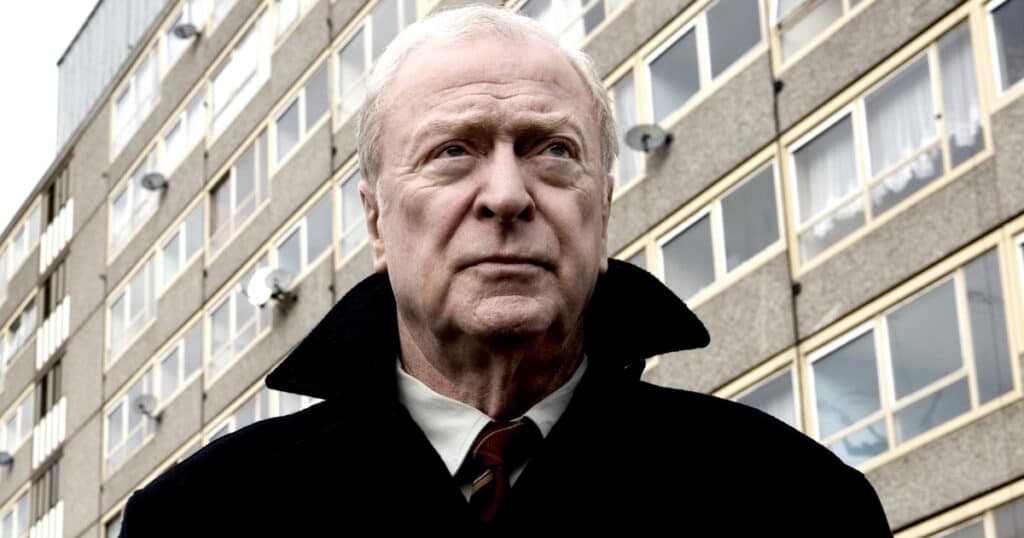
Caine’s portrayal of Fred Ballinger in 2015’s Youth might be the best thing about the movie, though the movie is impressive visually, as well. It just sometime feels like the actors, Michael Caine included, are doing the best they can with what they have, rather than telling a fully realized story. Following voiceover work for 2017’s Dunkirk, Caine’s last collaboration with Christopher Nolan as of early 2024 was in 2020’s Tenet, which didn’t break even financially and was met with mixed reviews. It just often feels in watching that the stunning visuals and intense plot are happening around the characters rather than to them. It’s not a bad movie, but Nolan sets an incredibly high bar, especially for his fans. I’m sure its a head of its time but we are still in its time.
Caine once said, “The basic rule of human nature is that powerful people speak slowly and subservient people quickly, because if they don’t speak fast nobody will listen to them.” He would combine these approaches to form his unique and influential voice. he gets what he wants. like he saw this woman in a coffee commercial, thought she was beautiful, tracked her down, married her and now they are celebrating their 50th anniversary cuz true love.
This fricking legend of a man considered himself retired in 2023, perhaps finishing strong with The Great Escaper, which was well received by critics and audiences. He has said that roles portraying 90-year-old supporting characters don’t excite him like they used to. He’s also said “I retire all the time, and then a script arrives and tempts me out of retirement.” Michael Caine not being featured in 2023’s Oppenheimer seems to have come down to a scheduling conflict. Or maybe he really is serious about retirement. Who knows? Maybe Christopher Nolan or the right script can tempt him out of retirement for another go-round.
Nolan kept Caine on his sets for so long because of his immense acting ability, but also for the example he sets for other actors when it comes to preparation and professionalism. Whether we’ve seen the last Michael Caine film or not, he has left an indelible legacy on the world of television and film. And through his perseverance through his early struggles, he has reminded us all, “Why Do We Fall, Sir? So That We Can Learn To Pick Ourselves Up.”







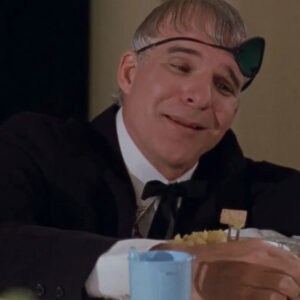
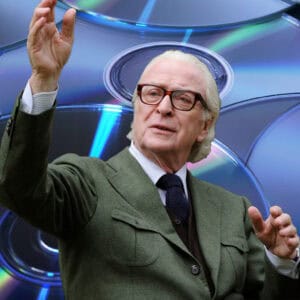
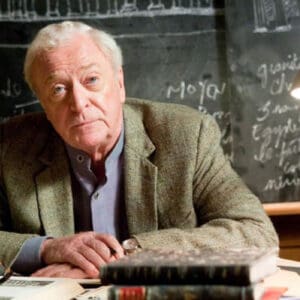



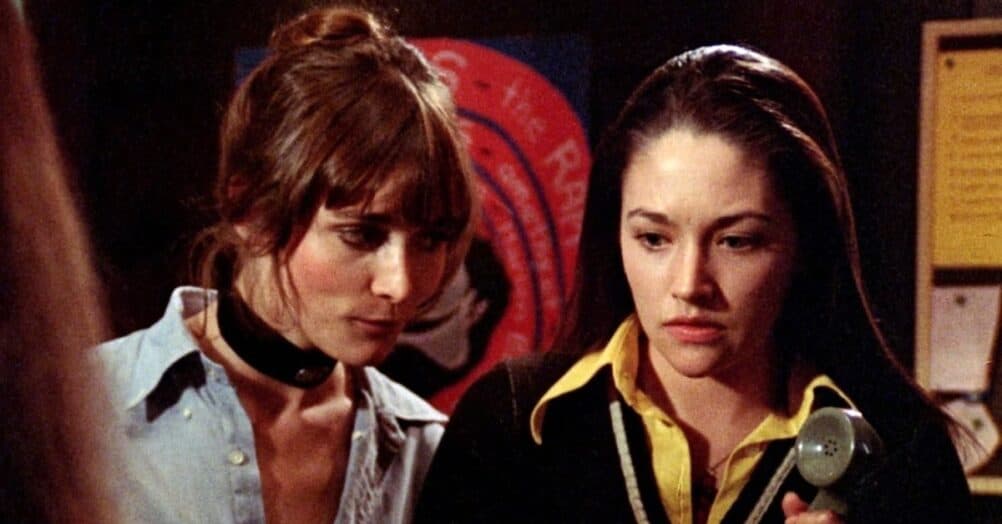






Follow the JOBLO MOVIE NETWORK
Follow us on YOUTUBE
Follow ARROW IN THE HEAD
Follow AITH on YOUTUBE